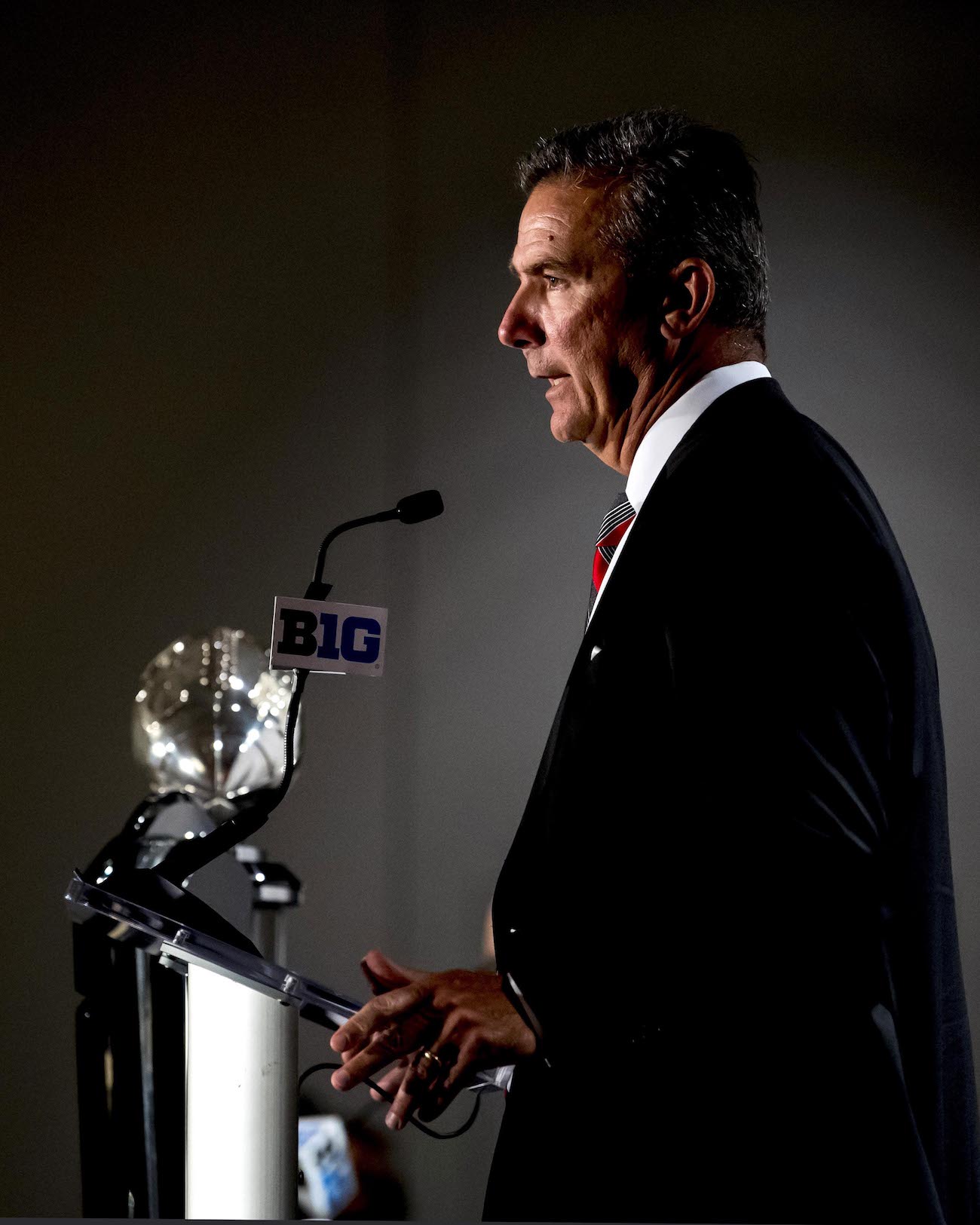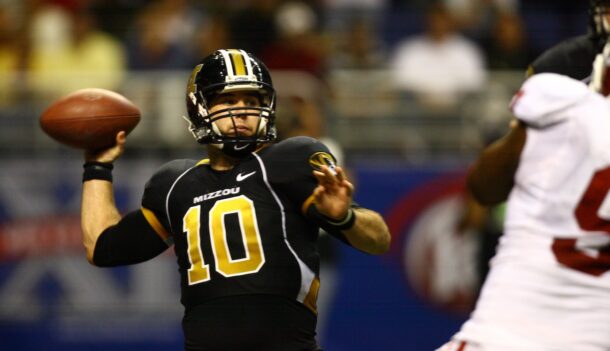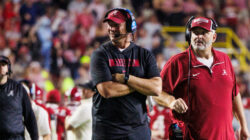
There’s an important lesson to be learned for SEC coaches in the wake of the Urban Meyer scandal
Regardless of what happens with Urban Meyer, his predicament is a teaching point for every coach in America.
Call it a lesson, call it a reminder, call it whatever you want. There’s been a clear takeaway point from watching one of the most powerful people in college football get put on the brink of getting fired with cause for the role he allegedly played in covering up Zach Smith’s domestic violence allegations.
Don’t abuse your power.
It’s such a simple concept that I keep coming back to when thinking about where Meyer went wrong in all of this. His problem wasn’t that he hired someone with some demons. There are coaching staffs everywhere who have assistants doing things that are neither morally or legally acceptable.
Meyer’s problem was that at the two most critical junctures of this situation, he reportedly tried to use his power to diminish an extremely serious issue.
According to Brett McMurphy’s original report, Lindsey Voltolini (wife of OSU staffer Brian Voltolini) texted Courtney Smith that Meyer “didn’t know what to think” when he was told about the allegations against Zach Smith back in 2015.
Even if Meyer did follow correct Title IX protocol by contacting the proper university officials — something that’s still very much up in the air — he still made the decision to keep Smith on staff while making sure the allegation against Smith never went public. That’s abusing power.
Shoot, Meyer even tried to attack McMurphy publicly at B1G Media Days for bringing the 2015 incident to light after Smith was fired by Ohio State.
“I don’t know who creates a story like that,” Meyer said last week.
That was after Meyer claimed he found out about the 2015 incident the night before he spoke at B1G Media Days, where he said that “it was nothing.” As we found out from McMurphy’s report and police reports from Cleveland.com, Smith’s behavior was not “nothing.”
But did that stop Meyer from trying to bully a reporter into making it look like he had some sort of agenda against his program? Of course not.

Meyer is living proof of why every press conference matters for a coach. Coaches who try to use that platform to lie in order to get back on the offensive aren’t doing themselves any favors. Had Meyer admitted to knowing about Smith’s 2015 incident or at least acknowledged the severity of an assistant on his staff who had a restraining order filed against him, we might be having a different conversation right now. Instead, Meyer tried to spin the narrative in his favor and he got caught in a lie.
Remember Jim McElwain last year? He tried to spin the narrative in his favor at a press conference and he ultimately got fired. It turns out, just because you’re making millions of dollars as the head coach of a major football program doesn’t mean you get to make up death threats when it’s convenient.
It was a different set of circumstances, but that was still an abuse of power.
When we look back on the 2010s decade of college football, we’re going to remember it as a time when that concept finally caught up to coaches. Joe Paterno abused his power at Penn State. Art Briles abused his power at Baylor. Meyer abused his power at Ohio State. While they did so in different ways, the point remains.
Nobody is untouchable. No coach — no matter how many wins he has or how massive his fan base is — is allowed to use his power to circumvent serious issues for the betterment of his football program.
Soon, we could see a situation like this arise with an SEC coach. McElwain was different from what Briles, Meyer and Paterno encountered because his on-field efforts hadn’t warranted unconditional support, and Hugh Freeze was coming off a 5-7 season when his scandal broke. Here’s hoping we don’t need another lesson in this.
The last thing our society needs is big, powerful universities with household name coaches trying to pretend that claims from victims are “nothing.” Maybe Meyer’s case will finally send a message to the sports world that it doesn’t matter who you are. It doesn’t matter if you’re Nick Saban at Alabama or Josh Lynn at Division II Nebraska-Kearney. Don’t abuse your power.
The old saying rings loud and clear at a time like this. “With great power comes great responsibility.” Meyer reminded us all that there’s something else that should be attached to that.
“With great power comes great responsibility; but if you abuse it, you’ll lose it.”
Connor O'Gara is the senior national columnist for Saturday Down South. He's a member of the Football Writers Association of America. After spending his entire life living in B1G country, he moved to the South in 2015.







